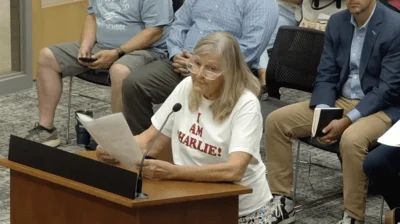Illinois Gov. JB Pritzker | Governor JB Pritzker/Facebook
Illinois Gov. JB Pritzker | Governor JB Pritzker/Facebook
Alan Mills, executive director of Uptown People’s Law Center (UPLC), said that Stateville and Pontiac prisons are among the state-run facilities where the Illinois Environmental Protection Agency (EPA) has recently issued drinking water violation notices.
“I don’t remember the last time I went to a prison and guards were willing to drink the water there,” Mills said. “They all carry water bottles around. Everybody knows the water’s not good.”
The National Institute of Corrections reported the jail population is approximately 19,000 in Illinois in 2020.
Over the last six-months, the agency has alleged facilities were not testing their water for harmful chemicals like chlorine, copper and lead; a recent WBEZ report said. In addition, many of them also lacked proper water treatment and sanitation infrastructure, including water softeners.
“Water is a human right,” Meleah Geertsma, director of Environmental Justice Policy at the Natural Resources Defense Council, told the Chicago Sun-Times in 2022. “Every person has a right to safe, clean and sufficient water and sanitation — a right that does not end when a person is incarcerated.”
The Illinois Environmental Protection Agency also noted that nearly all 10 facilities did not have emergency plans for alternative supplies of drinking water in cases of natural disasters or when the community water supply is contaminated.
“Illinois prisons are toxic,” Mills wrote on UPLC’s website. “In many prisons, the water is not safe to drink, cellhouses are full of dangerous black mold, and vermin are so pervasive that they run across prisoners as they sleep. We at UPLC are fighting to protect people in prison from these dangerous conditions.”
The coalition sent a letter to Illinois Gov. JB Pritzker in April urging him to address outbreaks of Legionnella, a bacteria that causes Legionnaires’ disease, in the water at a dozen prisons across the state.






 Alerts Sign-up
Alerts Sign-up